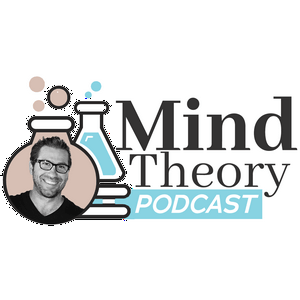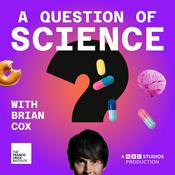95 episodios

The Invisible Influencers: How Subconscious Cues Shape Your Decisions
08/1/2025 | 23 min
Welcome to the Mind Theory Podcast, where we uncover the unseen forces that shape how we think, act, and interact with the world. In this episode, we dive into the fascinating world of subconscious cues and social influences—those invisible forces that guide your decisions without you even realizing it. Inspired by Wharton professor Jonah Berger's book Invisible Influence, we'll explore: How subtle social cues impact everything from what you buy to how you behave in group settings. The surprising role of social comparison and peer influence in shaping decisions. Why even nonconformists are still influenced by social norms, debunking the myth of the "rugged individualist." Real-world examples of invisible influence, like why trends rise and fall faster in the digital age and how social dynamics affect everyday choices, from parking to picking a car. How to harness the power of social influence for positive change while minimizing its negative effects. Whether you're curious about how trends spread, why you make the choices you do, or how to take control of invisible influences in your life, this episode will open your eyes to the hidden forces shaping your world. Key Tags: subconscious cues, social influence, decision-making, social comparison, Jonah Berger, Invisible Influence, peer pressure, consumer behavior, digital trends, psychology of influence For inquiries, collaborations, or to share your thoughts, contact Randall Chesnutt at [email protected]. 🎙️ Subscribe to the Mind Theory Podcast on Spotify, Apple Podcasts, or your favorite platform. Don't forget to leave a review and share this episode with anyone curious about how much control they really have over their decisions!

The Sound of Silence: What Happens to Your Brain When You Do Absolutely Nothing
07/1/2025 | 14 min
Welcome to the Mind Theory Podcast, where we explore the fascinating intersections of neuroscience, perception, and the human experience. In this episode, we dive into the science and mystery of silence, uncovering what happens in your brain when you're surrounded by stillness—or doing absolutely nothing. Inspired by Katrina Paulson's thought-provoking Medium article and groundbreaking research from Johns Hopkins University, we'll discuss: How your brain actively perceives silence, treating it not as an absence of sound but as its own unique auditory experience. The surprising neuroscience behind auditory illusions and how silence is processed similarly to sound. Reflections on the cultural and personal significance of silence, from moments of introspection to its role in creativity and well-being. Why moments of silence are essential for mental clarity, emotional balance, and even brain health. Practical tips for incorporating silence into your daily life to recharge your mind and body. Whether you're curious about the science of sound, interested in mindfulness practices, or just looking to find more stillness in a noisy world, this episode will give you a whole new perspective on the power of silence. Key Tags: science of silence, auditory perception, neuroscience, mindfulness, brain health, Johns Hopkins research, auditory illusions, mental clarity, emotional well-being, cultural significance of silence For inquiries, collaborations, or to share your thoughts, contact Randall Chesnutt at [email protected]. 🎙️ Subscribe to the Mind Theory Podcast on Spotify, Apple Podcasts, or your favorite streaming platform. Don't forget to leave a review and share this episode with anyone seeking the transformative power of silence in a noisy world!

The Memory You Never Made: How Your Brain Creates False Memories
06/1/2025 | 18 min
Welcome to the Mind Theory Podcast, where we unravel the mysteries of the mind and uncover the surprising truths about how our brains work. In this episode, we delve into false memories—how your mind can create vivid, detailed memories of events that never happened and the fascinating science behind this phenomenon. Inspired by Kendra Cherry's Verywell Mind article and the groundbreaking research of Elizabeth Loftus, we'll explore: What false memories are and why they're more common than you might think. The role of suggestion, misinformation, and imagination in forming false memories. How false memories can lead to profound consequences, including wrongful convictions and altered personal narratives. The science behind why our brains are so susceptible to creating these fabricated recollections. Practical tips to become more aware of memory distortions and safeguard against misinformation. Whether you're curious about the quirks of memory, interested in the psychology of perception, or just fascinated by the ways your brain can deceive you, this episode will leave you questioning how much of what you remember is actually real. Key Tags: false memories, memory distortions, Elizabeth Loftus, misinformation effect, memory science, wrongful convictions, memory formation, cognitive psychology, human behavior, self-awareness For inquiries, collaborations, or to share your thoughts, contact Randall Chesnutt at [email protected]. 🎙️ Subscribe to the Mind Theory Podcast on Spotify, Apple Podcasts, or your favorite platform. Don't forget to leave a review and share this episode with anyone intrigued by the fascinating (and flawed) nature of memory!

Decision Detox: How to Clear Mental Clutter and Focus on What Matters
02/1/2025 | 10 min
Welcome to the Mind Theory Podcast, where we explore strategies to help you think clearer, live better, and unlock your potential. In this episode, we tackle the overwhelming mental clutter that slows you down and reveal actionable techniques to help you focus on what truly matters in your personal and professional life. Inspired by Foteini Ntelopoulou's insightful Medium article, we'll discuss: The "Inverted Calendar" method for shifting focus from endless to-do lists to celebrating completed actions. The "10-Minute Rule" for limiting time spent on distractions and keeping your mind on track. How tracking tasks and emotions can uncover what's meaningful and eliminate unnecessary mental noise. The science behind mental decluttering and how it boosts productivity and well-being. Practical steps to prioritize quality over quantity and cultivate a stronger sense of focus and accomplishment. Whether you're looking to simplify your mental space, make better decisions, or start the new year with clarity, this episode is packed with tools to help you take control of your time and energy. Key Tags: mental decluttering, focus, productivity, decision-making, inverted calendar, 10-minute rule, well-being, personal growth, prioritization, clarity For inquiries, collaborations, or to share your thoughts, contact Randall Chesnutt at [email protected]. 🎙️ Subscribe to the Mind Theory Podcast on Spotify, Apple Podcasts, or your favorite streaming platform. Don't forget to leave a review and share this episode with anyone ready to clear their mental clutter and focus on what truly matters!

The Illusion of Motion: Why Stationary Objects Sometimes Appear to Move
27/12/2024 | 14 min
Welcome to the Mind Theory Podcast, where we unravel the mysteries of the human mind and the science behind how we perceive the world. In this episode, we dive into the fascinating phenomenon of motion illusions—why your brain sometimes interprets stationary objects as moving and what it reveals about the complexity of visual perception. Drawing from neuroscience research and motion perception theories, we'll explore: The brain's key players in motion processing, including areas like V1 and MT, and how they handle direction and velocity. How the visual system integrates information from eye movements and the vestibular system to differentiate between self-motion and object motion. The corollary discharge model, explaining how the brain combines motor and sensory signals to create an accurate perception of motion. Examples of motion illusions, from the classic "spinning snakes" illusion to why car wheels sometimes appear to spin backward. How understanding motion perception can help in fields like virtual reality, neuroscience, and even sports performance. This episode will change the way you think about how your brain processes motion and the surprising tricks it plays on you every day. Key Tags: motion illusions, visual perception, brain science, motion processing, corollary discharge, V1 and MT, self-motion, sensory integration, neuroscience, perception science For inquiries, collaborations, or to share your thoughts, contact Randall Chesnutt at [email protected]. 🎙️ Subscribe to the Mind Theory Podcast on Spotify, Apple Podcasts, or your favorite streaming platform. Don't forget to leave a review and share this episode with anyone fascinated by the science of perception and how our brains interpret motion!
Más podcasts de Ciencias
Podcasts a la moda de Ciencias
Acerca de Mind Theory
Escucha Mind Theory, The Rest Is Science y muchos más podcasts de todo el mundo con la aplicación de radio.es

Descarga la app gratuita: radio.es
- Añadir radios y podcasts a favoritos
- Transmisión por Wi-Fi y Bluetooth
- Carplay & Android Auto compatible
- Muchas otras funciones de la app
Descarga la app gratuita: radio.es
- Añadir radios y podcasts a favoritos
- Transmisión por Wi-Fi y Bluetooth
- Carplay & Android Auto compatible
- Muchas otras funciones de la app


Mind Theory
Descarga la app,
Escucha.





































